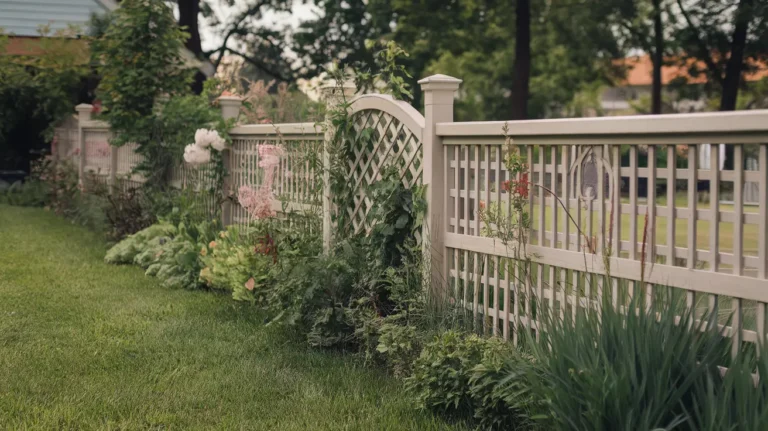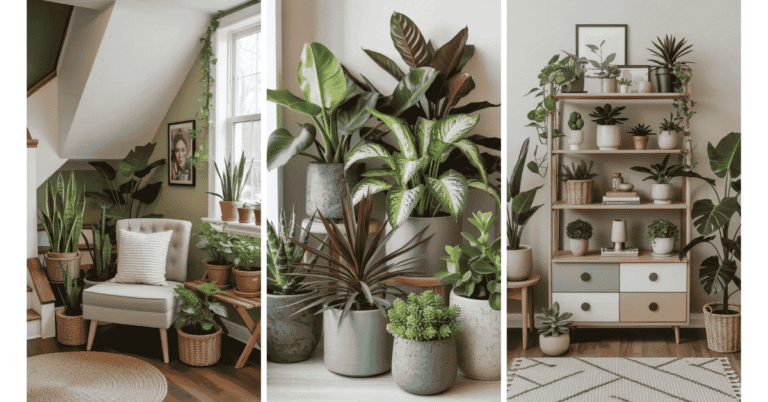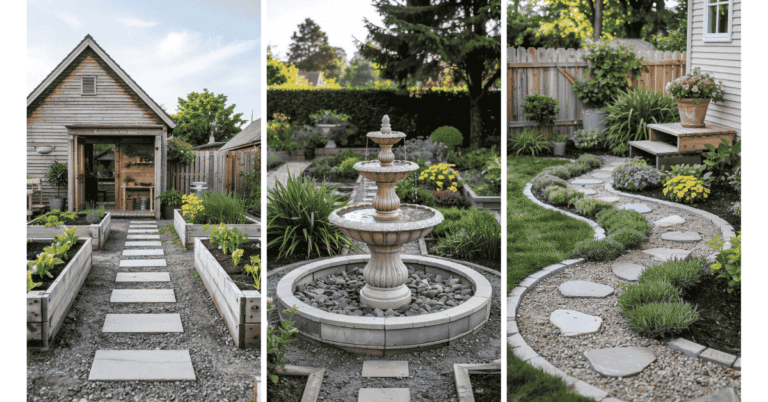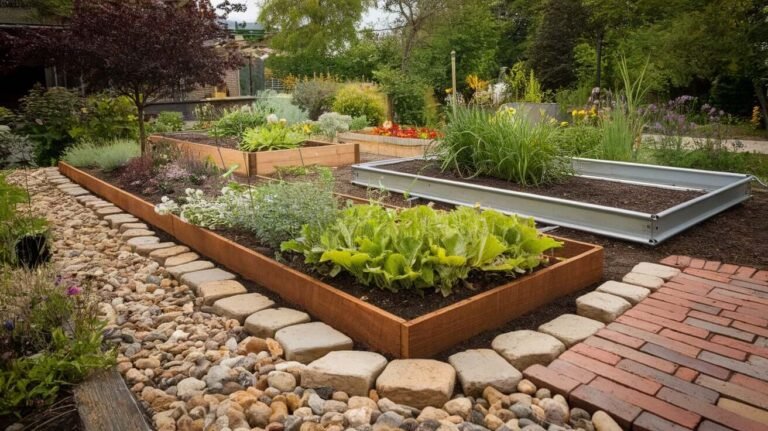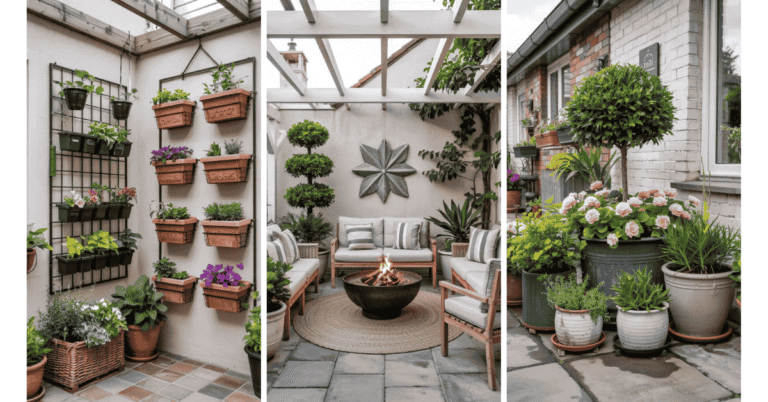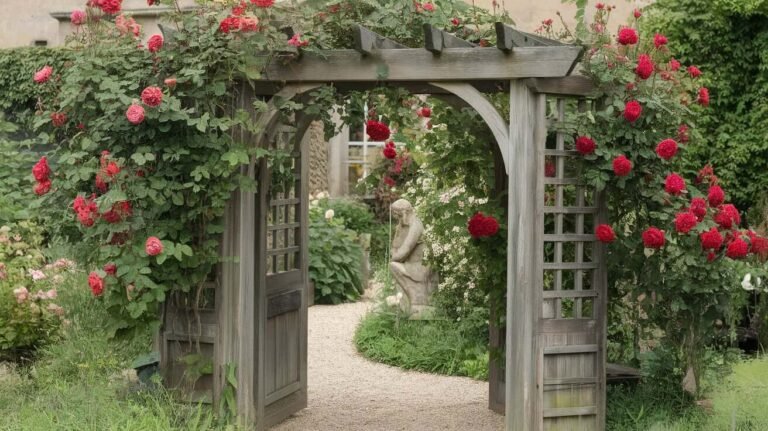20 Front Garden Retaining Wall Ideas That Will Transform Your Curb Appeal
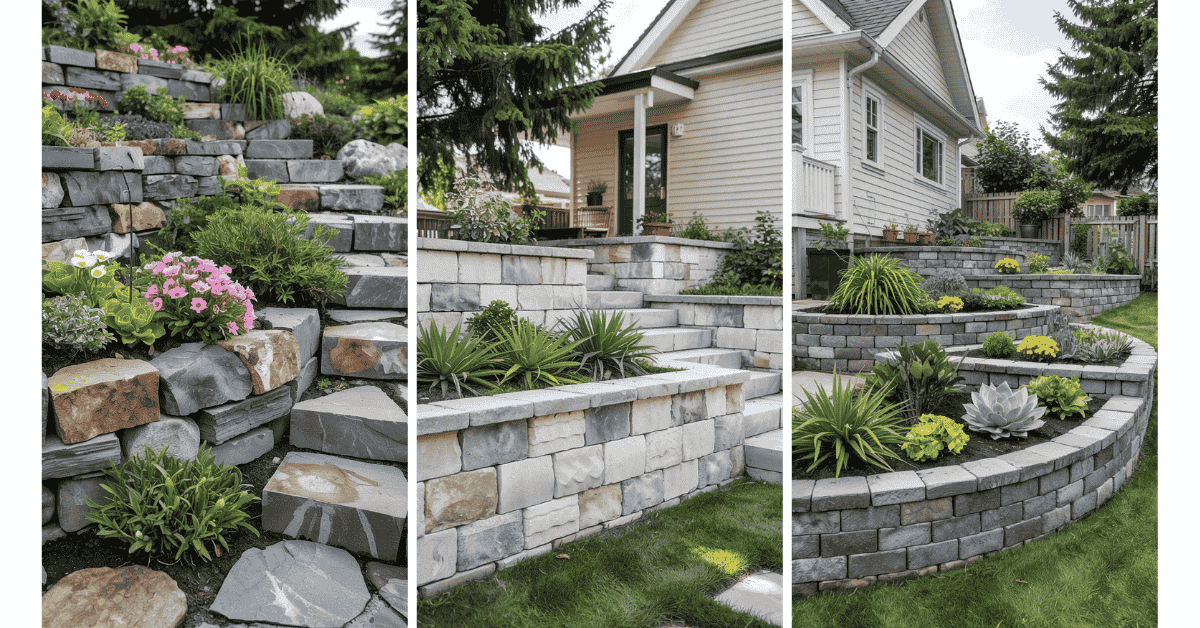
I know firsthand how a well-designed retaining wall can completely transform your front garden from ordinary to extraordinary.
Whether you’re dealing with a sloped yard, want to create defined planting areas, or simply add visual interest to your landscape, retaining walls offer both function and beauty.
I’ve compiled 20 inspiring front garden retaining wall ideas that range from budget-friendly DIY projects to premium natural stone installations.
Each option provides practical solutions while enhancing your home’s curb appeal and property value.
1. Natural Stone Boulder Wall
I create a stunning rustic look by using large boulders of varying sizes to build my retaining wall. This approach works particularly well if I want my wall to blend seamlessly with a natural, woodsy landscape.
The irregular shapes and sizes of boulders provide excellent natural drainage, which prevents water buildup behind the wall.
I find this option especially appealing because it requires minimal maintenance once installed and develops character over time as plants naturally establish themselves in the crevices.
2. Stacked Limestone Blocks
I choose limestone blocks when I want a clean, contemporary appearance that still maintains natural warmth. These blocks can be dry-stacked or mortared, depending on the height and structural requirements of my wall.
Limestone offers excellent durability and weathers beautifully, developing a subtle patina over time.
I particularly appreciate how limestone blocks create crisp, geometric lines that complement modern home designs while still feeling organic and timeless.
3. Tiered Garden Walls
I design multi-level retaining walls to create terraced planting areas that add depth and visual interest to my front garden. This approach works exceptionally well on steep slopes where a single tall wall might feel overwhelming.
Each tier provides a distinct planting zone, allowing me to create diverse garden beds with different plant heights and textures. The stepped design also makes maintenance easier since I can access each level comfortably for planting and care.
4. Brick Retaining Wall with Classical Appeal
I incorporate traditional red brick when I want to complement a colonial or traditional home style. Brick retaining walls offer timeless elegance and can be built in various patterns like running bond or herringbone for added visual texture.
The warm tones of brick create an inviting atmosphere and pair beautifully with both formal and cottage-style plantings. I find brick particularly effective when I echo the material used in my home’s construction, creating a cohesive design throughout the property.
5. Gabion Wall with Modern Edge
I construct gabion walls using wire mesh cages filled with decorative stones or gravel when I want an industrial-modern aesthetic. This option provides excellent drainage and can be a cost-effective DIY project.
The wire structure allows for interesting visual effects as plants grow through and around it, softening the hard edges over time. I appreciate how gabion walls can incorporate recycled materials and create unique textural contrasts in my landscape design.
6. Wooden Sleeper Wall
I use vertical or horizontal wooden sleepers to create a fence-like retaining wall that adds warmth and natural texture to my front garden. This approach works particularly well in contemporary and craftsman-style landscapes.
Wooden walls provide flexibility in design, allowing me to vary heights and create interesting geometric patterns. I choose treated timber or naturally rot-resistant species like cedar to ensure longevity, and I enjoy how wood weathers to a beautiful silver-gray patina.
7. Curved Stone Wall Following Natural Contours
I design curved retaining walls that follow the natural flow of my landscape rather than fighting against it. This organic approach creates a more harmonious relationship between hardscape and planted areas.
Curved walls eliminate harsh corners and create graceful transitions throughout the garden. I find this design particularly effective for creating intimate seating areas or highlighting specimen plants while maintaining visual flow from the street to my home’s entrance.
8. Concrete Block Wall with Creative Finishes
I choose concrete blocks when I need an affordable solution that doesn’t compromise on style. Modern concrete blocks come in various colors and textures, allowing me to create sophisticated looks on a budget.
I can enhance concrete blocks with stucco finishes, paint, or decorative caps to match my home’s architecture. The uniform size makes installation straightforward, and I appreciate the structural strength concrete provides for taller retaining walls.
9. Flagstone Steps Integrated into Wall Design
I incorporate natural stone steps directly into my retaining wall design to create seamless transitions between different garden levels. Materials like flagstone, bluestone, or fieldstone work beautifully for this integrated approach.
This design eliminates the need for separate stairway construction while creating elegant pathways through my terraced garden. I find that integrated steps feel more organic and provide opportunities for creative planting in adjacent crevices and joints.
10. Steel Retaining Wall with Industrial Charm
I install steel retaining walls when I want a sleek, contemporary look that develops beautiful rust patina over time. Cor-ten steel is particularly popular for its weather-resistant properties and rich color development.
Steel walls provide clean lines and work exceptionally well in modern landscape designs. I appreciate how the material’s thinness maximizes planting space while still providing excellent structural support for soil retention.
11. Mixed Material Wall Design
I combine expensive materials like natural stone with budget-friendly options like concrete blocks to create visually interesting walls that fit my budget. This approach allows me to achieve premium looks while controlling costs.
For example, I might use natural stone for the visible face while using concrete blocks for the structural base. I can also alternate materials in patterns or use stone caps on concrete block walls for added sophistication.
12. Alpine Rock Garden Wall
I create mountainous garden aesthetics by incorporating alpine plants like Primula, Dianthus, and thyme into my rock retaining wall design. This approach works particularly well with natural stone construction.
The combination of rugged stone and delicate alpine plants creates compelling visual contrasts while providing habitat for beneficial insects. I find this style particularly effective in areas with challenging growing conditions or where I want low-maintenance plantings.
13. Cascading Plant Wall Design
I soften the harsh edges of my retaining walls by encouraging plants to spill over and create cascading effects. This technique adds movement and natural beauty while maintaining the wall’s structural function.
Trailing plants like ivy, creeping phlox, or ornamental grasses create beautiful waterfalls of foliage and flowers. I select plants based on my climate and light conditions, ensuring year-round interest and easy maintenance.
14. Driveway Border Retaining Wall
I construct retaining walls along my driveway to keep soil and debris from washing onto the paved surface during heavy rains. This functional approach also creates opportunities for attractive planted borders.
The wall provides clean separation between my driveway and garden areas while offering protection for both surfaces. I often incorporate lighting into driveway retaining walls to enhance safety and create welcoming nighttime ambiance.
15. Tree Well Retaining Wall
I build small retaining walls around existing trees to create level planting areas and protect the tree’s root system. This approach allows me to add colorful plantings while maintaining proper drainage around the tree.
The circular or curved walls create focal points in my landscape while providing practical benefits for both the tree and surrounding plants. I ensure proper spacing to avoid root damage and select companion plants that complement the tree’s requirements.
16. Colored Block Wall for Visual Impact
I introduce bold colors into my landscape by choosing retaining wall blocks that complement my home’s exterior palette. Modern manufacturing offers numerous color options beyond traditional gray concrete.
Colored walls can echo porch or patio colors, creating cohesive design throughout my outdoor spaces. I find that warm earth tones work well for most applications, while cooler colors can create striking contemporary statements in the right setting.
17. Entry Statement Wall
I design prominent retaining walls at my home’s entrance to create dramatic curb appeal and establish a sense of arrival. These walls often incorporate address numbers, lighting, or decorative elements.
Entry walls provide opportunities to showcase my personal style while creating functional support for elevated planting beds. I ensure the scale and materials complement my home’s architecture while making a memorable first impression for visitors.
18. Fire Feature Integration
I incorporate fire pits or outdoor fireplaces into my retaining wall design using heat-resistant blocks that complement the main wall construction. This approach creates outdoor entertainment areas while maximizing space efficiency.
The fire feature becomes a natural gathering point while the retaining wall provides seating or display surfaces. I ensure proper ventilation and safety clearances while creating cozy outdoor living spaces that extend my home’s functionality.
19. Drainage Solution Wall
I use retaining wall blocks combined with gravel and moisture barriers to address drainage issues around my home’s perimeter. This functional approach prevents water problems while creating attractive landscape features.
The wall system redirects surface water away from my foundation while providing opportunities for rain-loving plants. I incorporate French drains or other drainage systems behind the wall to ensure long-term effectiveness and prevent hydrostatic pressure buildup.
20. Southwest Style Cactus Wall
I create distinctive regional character by planting cacti and succulents along my rocky retaining walls. This approach works particularly well in warm, dry climates where water conservation is important.
The combination of natural stone and architectural plants creates striking textural contrasts while requiring minimal maintenance once established. I select cold-hardy varieties appropriate for my climate zone and ensure excellent drainage to prevent root rot.
Wrap Up
Ready to transform your front garden with a stunning retaining wall? Start by assessing your specific site conditions, budget, and design preferences.
Consider consulting with a landscape professional for walls over three feet tall or in areas with complex drainage requirements to ensure both beauty and structural integrity for years to come.





















